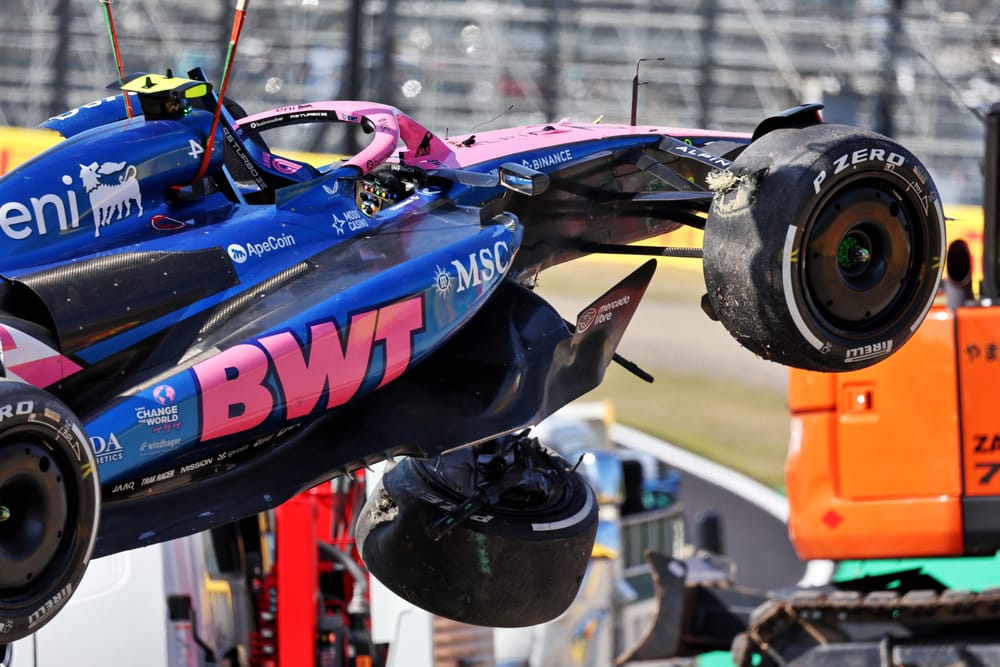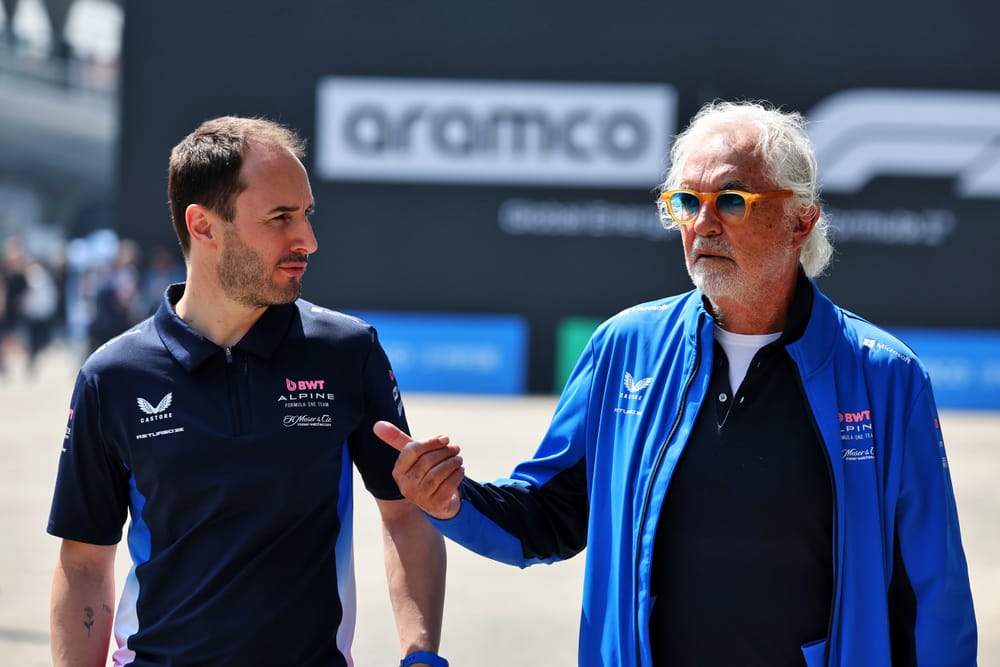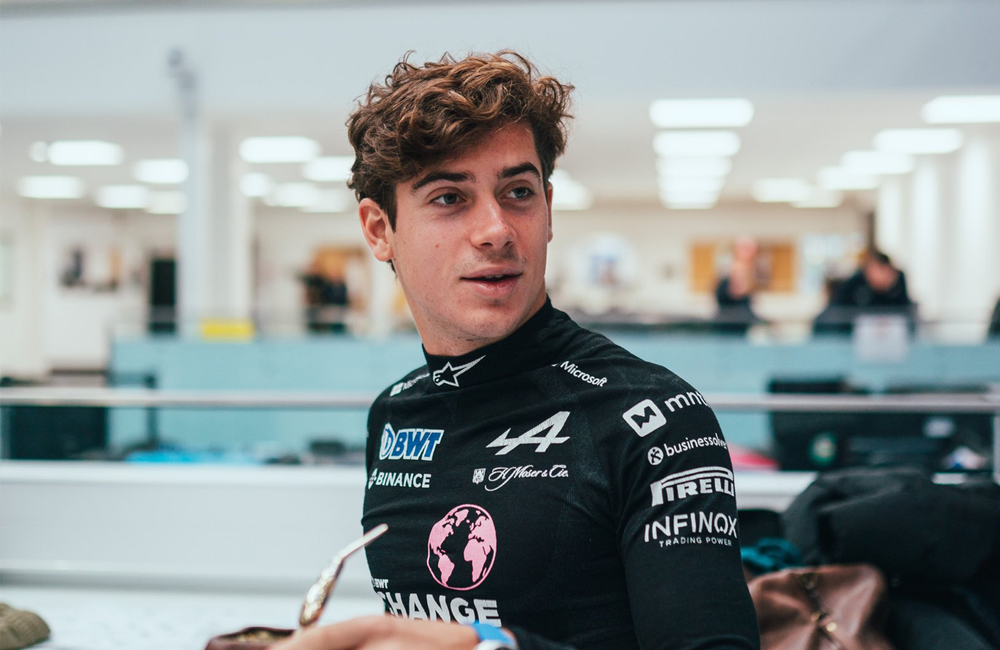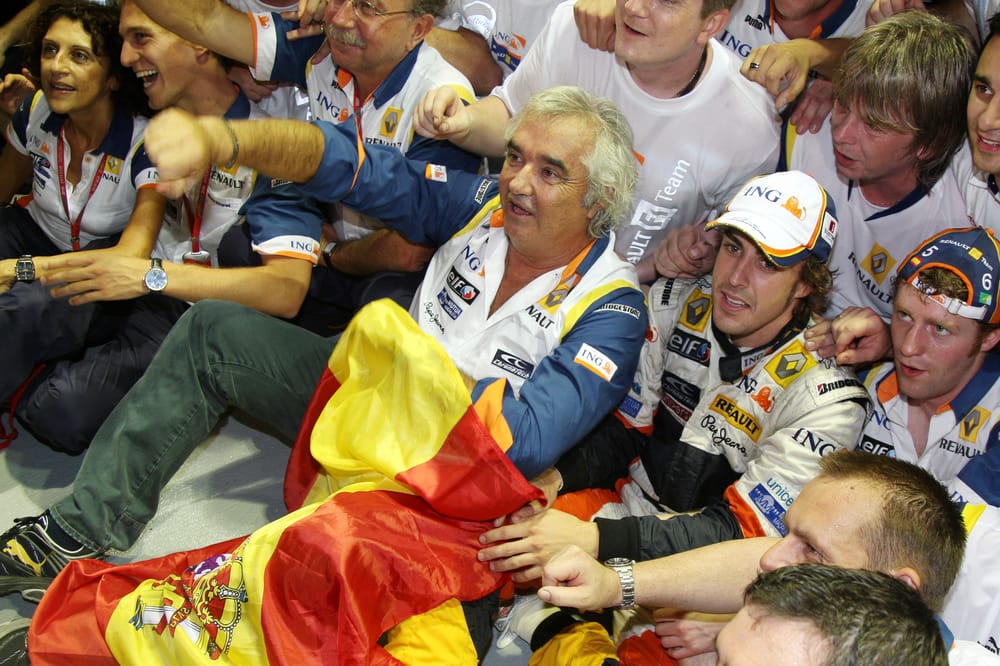The months of uncertainty over Jack Doohan's position and then the abruptness of his exit already put the Alpine Formula 1 team in a negative light. And then - on the evening before Franco Colapinto's long-awaited arrival in Doohan's old seat was actually announced - team principal Oli Oakes quit.
Here are our team's snap takes on the wild events at Alpine.
Jumping ship seems a wise move
Gary Anderson
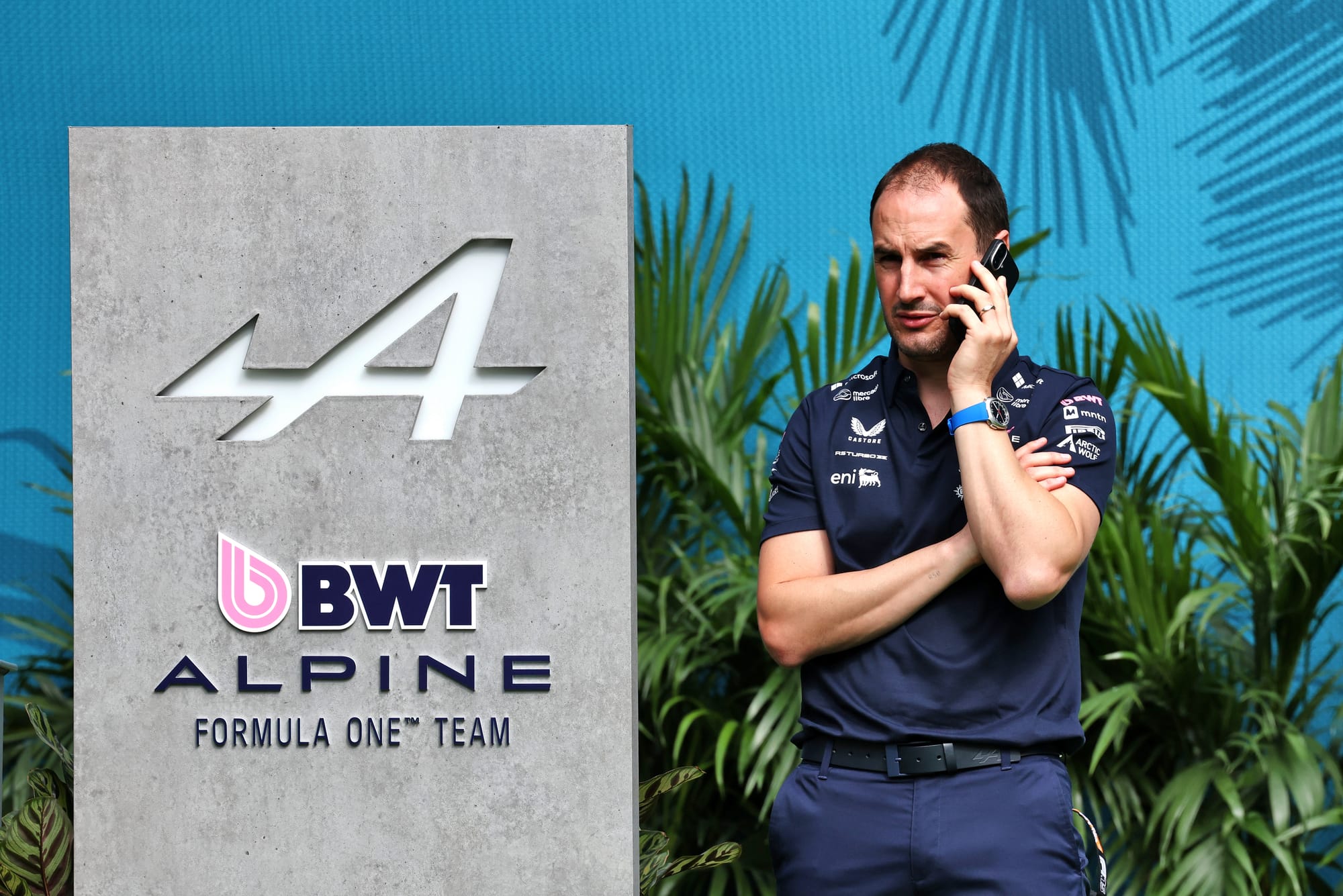
No change in how Alpine’s top management acts then. It just shows once a team is in disarray, it stays in disarray.
As I said in my earlier verdict on the team replacing Doohan, Oakes had just become a puppet to Briatore’s string pulling and I commend him for not putting up with that and jumping a potentially sinking ship.
The Doohan/Colapinto swap was always going to happen. I’m surprised it is only for five races (according to the media statement anyway). Drivers need a chance to settle in, get their head straight, make a couple of mistakes before they can show their real potential.
Doing it this way - it Alpine really has - just puts more pressure on Colapinto.
I suppose some people never learn.
Will the real architect of Alpine's chaos please stand up?
Scott-Mitchell Malm
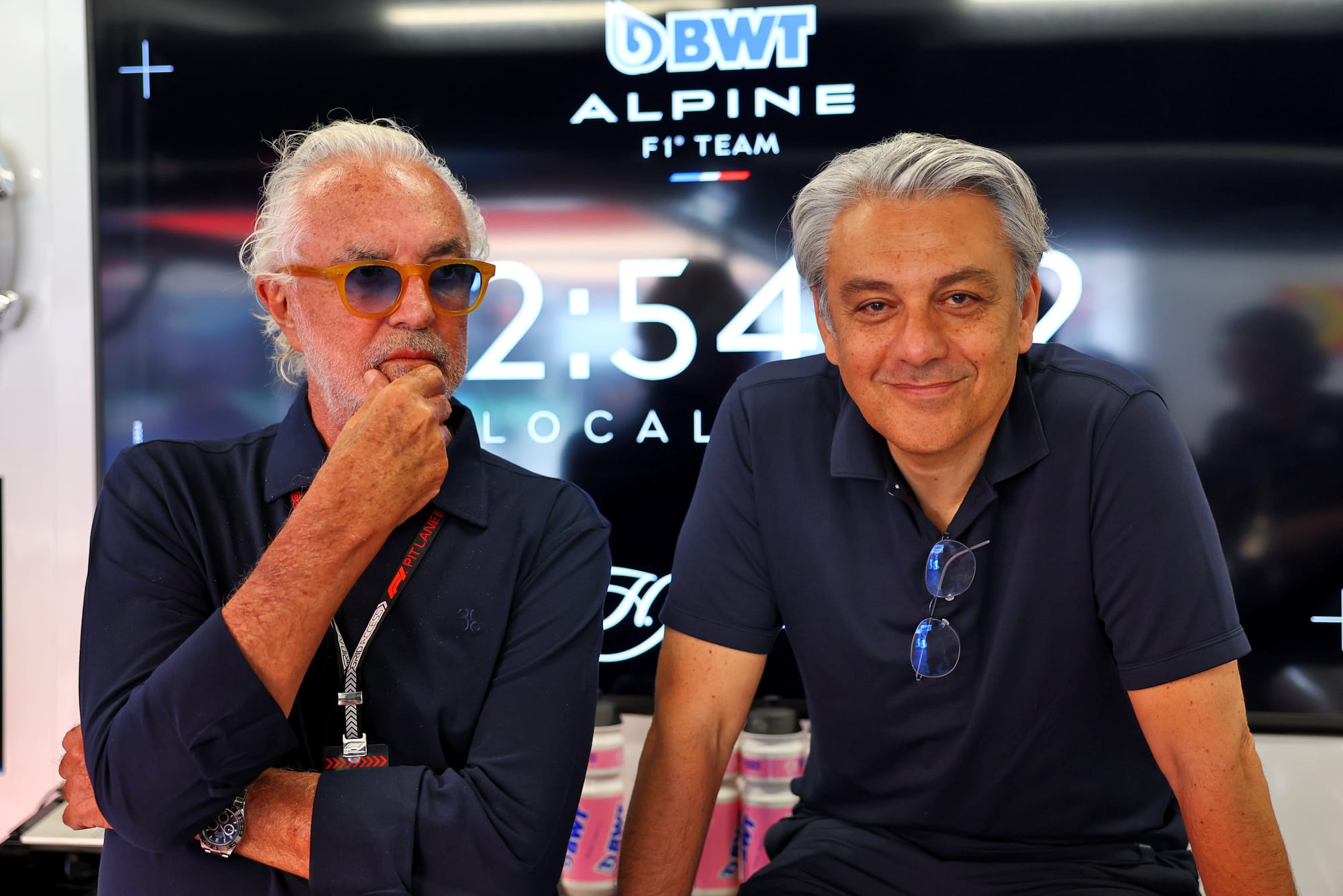
The newest instalment of the Alpine soap opera is arguably its most surprising yet - but you can be 99% sure the person ultimately responsible for its situation will continue to pretend he isn't.
Renault CEO Luca de Meo continues to play a key part in a shambolic level of turnover that undermines any effort to restore Team Enstone to its former glories.
Oakes’ resignation and a driver change after six races on a supposed trial basis are so far from what any serious F1 project needs, and admittedly a little different to the kind of direct ‘de Meo has fired someone again’ examples of past nonsense.
But ultimately, it’s de Meo who created the environment for Oakes to feel his position was untenable. Because bringing back Briatore - such a controversial figure with a great track record from past eras of F1 - has caused plenty of new problems for the F1 team to navigate.
One wonders if Oakes may now regret giving his own support when he arrived last year and took a swing at the way de Meo had been criticised for the team’s failings and management turnover. And as de Meo’s man Briatore is at the helm now more than ever, accountability won’t happen any time soon.
It’s been far too easy for Renault leadership to shirk responsibility for the mismanagement of this entity over the last decade. Such a long list of people to leave or be sacked after being appointed directly or indirectly by de Meo is indicative of a total failure of leadership given where the buck is meant to stop.
Want more from The Race's F1 team? Get exclusive bonus podcasts and videos by signing up to The Race Members' Club on Patreon. Right now there's 75% off your first month with this link.
Oakes’ name gets added to a long list of senior team personnel to leave this team, be they team bosses, project leaders, advisors or senior management. Cyril Abiteboul, Marcin Budkowski, Alain Prost, Laurent Rossi, Otmar Szafnauer, Bruno Famin and now Oakes have left for one reason or another. Respected paddock figures like Pat Fry, Matt Harman and Alan Permane have all departed too.
Not everyone named above was right for this team. But some were, so why were they dismissed or driven away. And those that weren’t right - well, will Renault realise where the real fault in that lies?
Or will there continue to be an unspoken implication that it’s just pure bad luck and coincidence that almost every person who tries to lead this team ends up out the door?
What else did you expect?
Ben Anderson
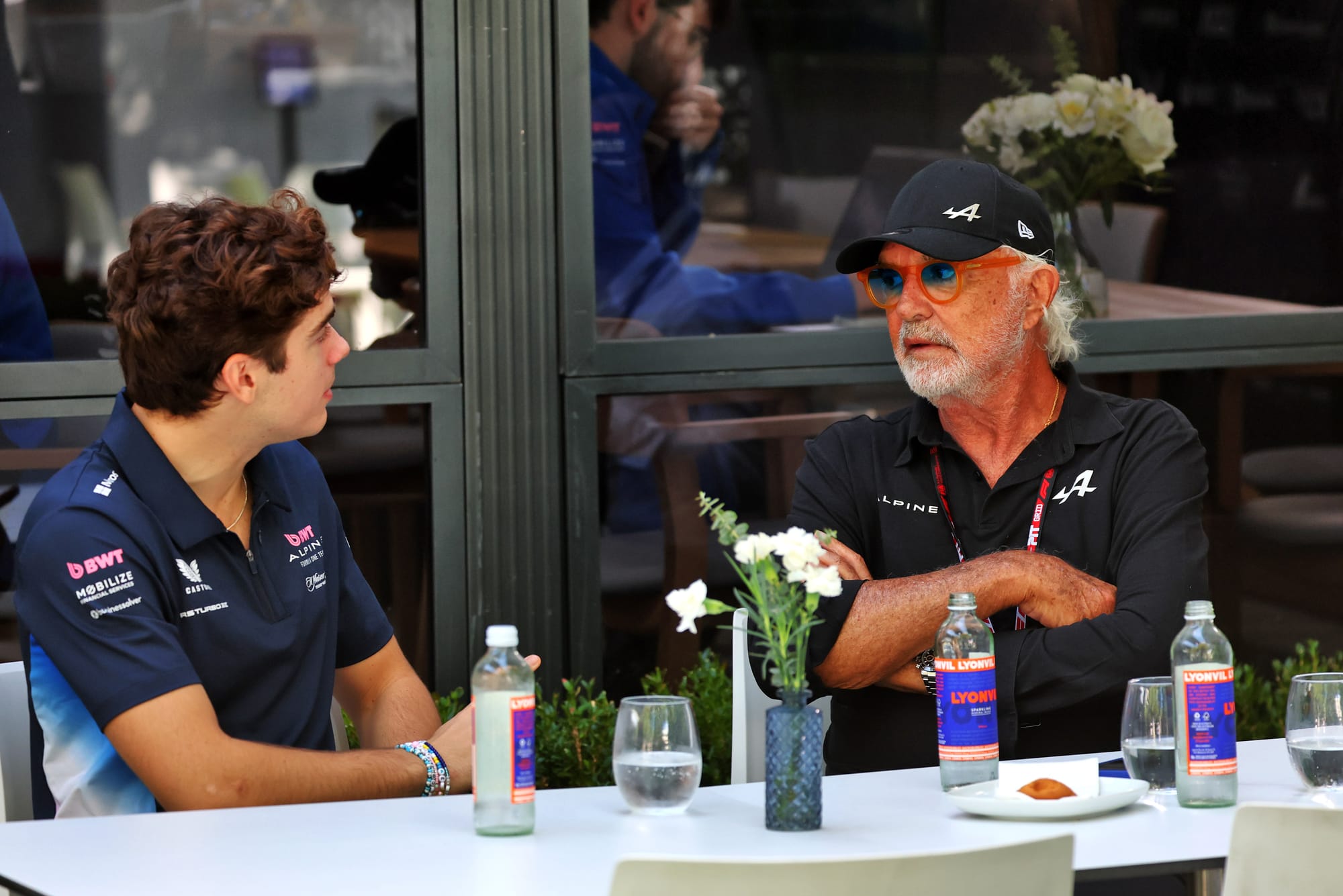
Although it looks chaotic on the surface, and seems like history repeating itself, what we have now at Alpine is effectively what we always thought we’d have: Flavio Briatore running the team and Franco Colapinto driving for it.
It’s a shame for Oli Oakes that his run as F1’s youngest team principal was so short, and unfortunate for Jack Doohan that his F1 career (for now at least) only lasted six races. But what else did anyone realistically expect?
Once that South American sponsorship money came good, Colapinto was always going to be in that seat - Briatore wanted it to happen and now it is happening. Doohan was always likely to be little more than a stop-gap unless his performances were incredible, which they weren’t. Solid underlying pace, but nothing more really.
And Briatore was always the one actually in charge of the team, ever since he rejoined as executive advisor and sidelined Bruno Famin (who didn’t agree with Briatore's plan to bin the works Renault engine programme and so fell on his sword).
From last year’s Spanish Grand Prix to the summer break, when Briatore’s return was announced until Famin was replaced by Oakes, Famin had the awkward task of being a spokesperson for things he clearly didn’t agree with.
We don’t know for sure that’s happened again (because Oakes won’t yet comment), but it seems likely the pattern has repeated - given the recent messaging coming from inside the team that Doohan should have been given until the summer to prove himself and then the sudden decision to replace him anyway.
It’s no easy task to be the front for someone else’s decisions, and again just highlights who’s really running the show. Whether Briatore should be running an F1 team again is one thing, but in reality he is - and with Pierre Gasly driving and ex-Ferrari man David Sanchez running the technical side (and Mercedes engines on the way soon) that team still has the potential to do well on-track.
At the same time, I can’t see Briatore doing the day-to-day legwork of being team principal long-term - so he’s going to need to find someone else who’s prepared to be effectively a loyal deputy and front for his policies.
Sympathy for Colapinto
Matt Beer
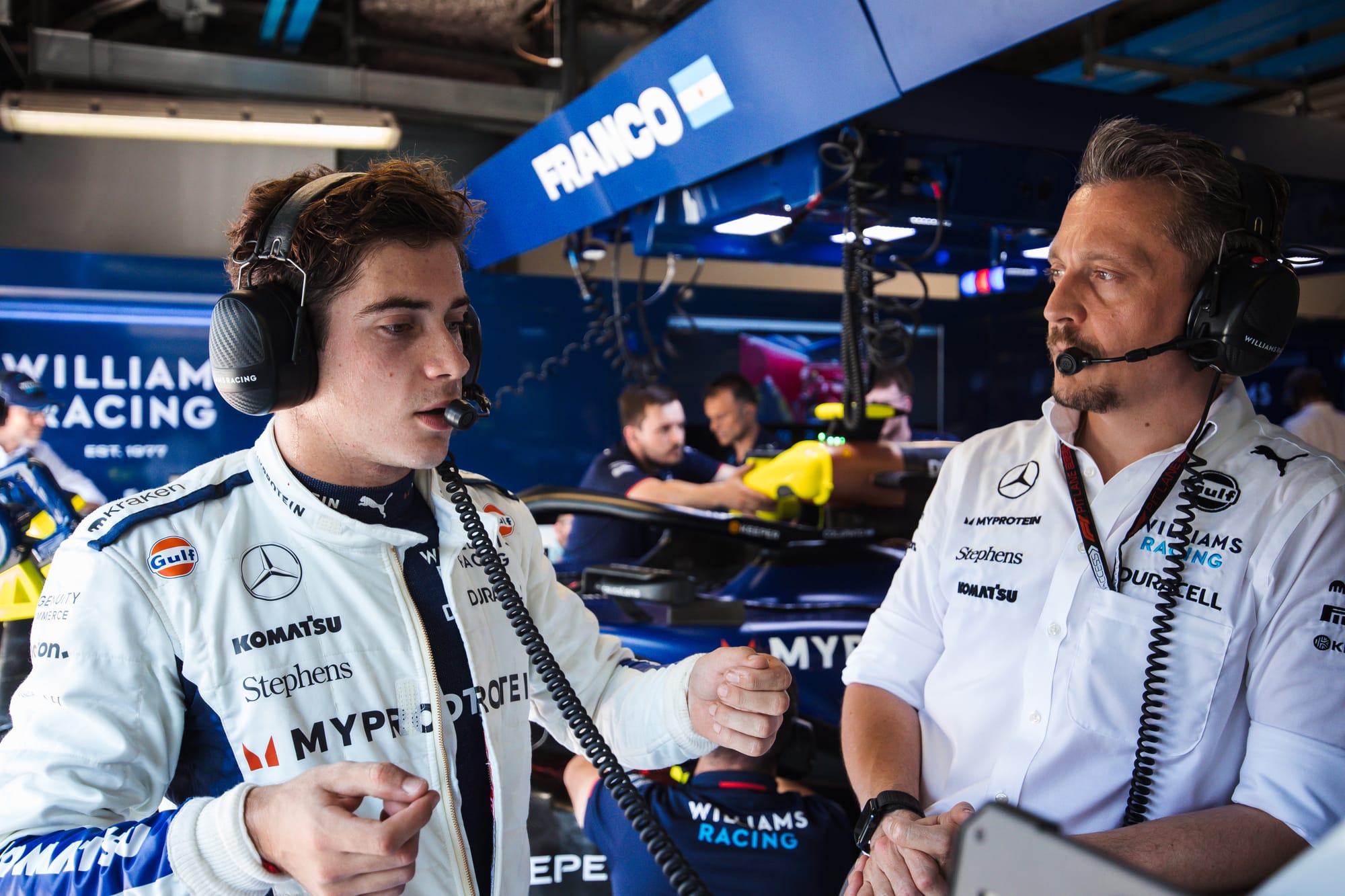
What a contrast. There was zero pressure of expectation on Colapinto when Williams promoted him to replace Logan Sargeant last year. He had minimal preparation, wasn’t really on F1’s radar, wasn’t in contention for a 2025 race seat - anything he achieved would be a total bonus.
Now he returns having been at the centre of five controversial months of rumour over when he’d usurp an incumbent driver, with that driver having been kicked aside for him after just six (not terrible) grands prix and with the team boss having quit over the whole saga. And with ostensibly just five events to prove he really does belong on the grid.
I suspect Colapinto needn’t worry too much about the five race deadline - his F1 arrival has enticed the ample sponsor links he never had in his junior career so he’s a financial asset to the team, he’s Briatore’s pick and main threat Paul Aron felt more of an Oakes pick and Oakes has gone.
But there’s still a lot more riding on Colapinto’s F1 return than there was on his debut, and enough evidence that he shouldn’t feel too secure in a team run in this manner. All of which is such a shame given how promising his first few weeks in F1 last autumn were.
Proof Alpine is prioritising financial concerns over sporting
Edd Straw
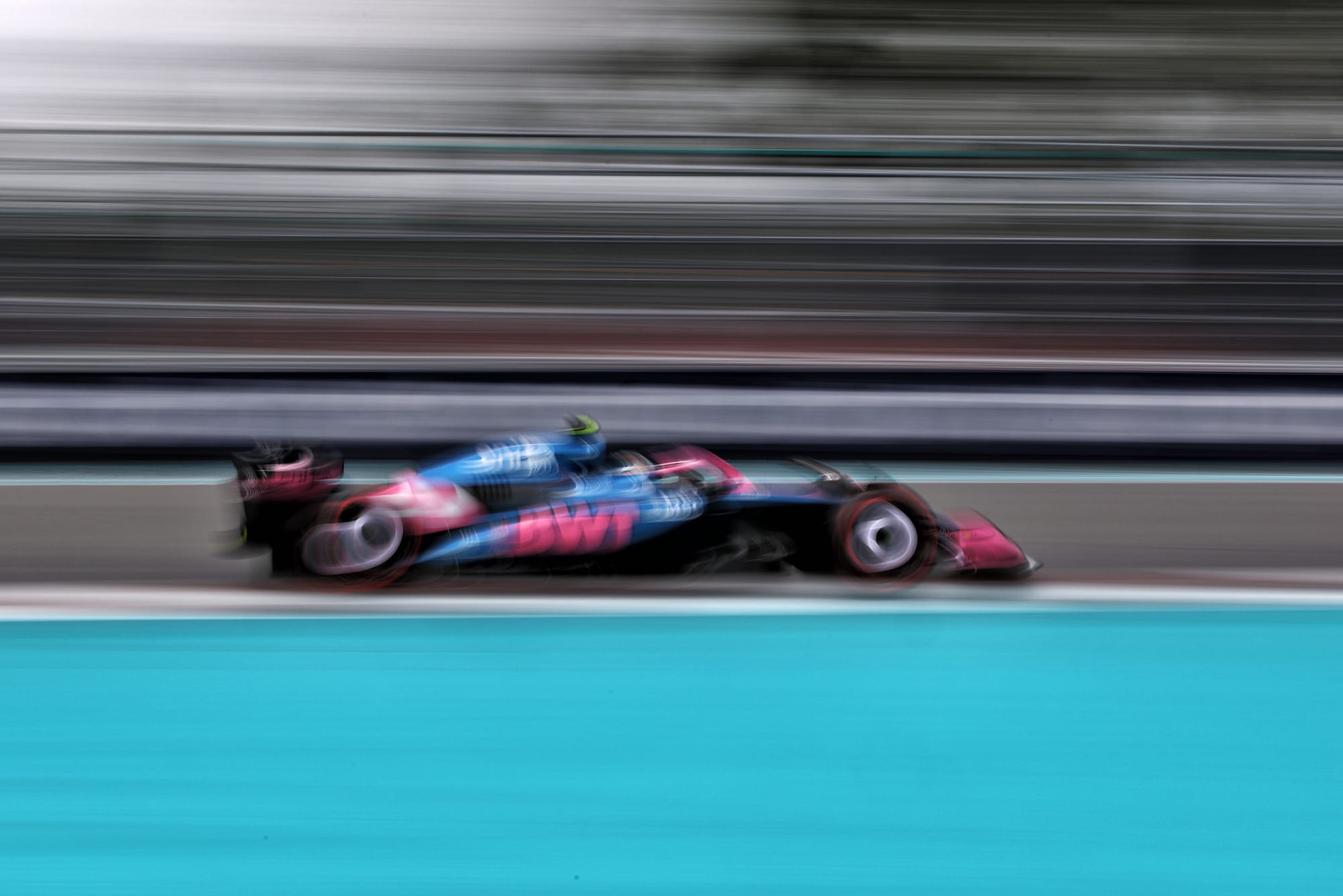
Any lingering pretence that the Alpine F1 team is doing anything more than prioritising financial concerns over sporting ones has been obliterated by the latest round of nonsense at this once-great team.
There are still good people there working hard and chasing on-track results, but it's long been clear that the ownership is either not especially interested in this, or so woefully ignorant about what is required to achieve that it's incapable of doing so.
This is nothing new. How could anyone take seriously a team that operates a revolving-door leadership strategy all the while the real decision makers that are ultimately responsible for the chaos lean back and find others to blame.
And just when you think rock bottom has been, which appeared to be the case when Flavio Briatore returned as what has been proved to be de facto team boss of an outfit that he was a key part of the darkest hour of, it turns out there's another low.
Let's just see Alpine F1 for what it is. It's a sporting asset that retains a high value primarily thanks to the wider state of F1 rather than anything it is doing, and one that the majority Renault Group ownership will cash in on at some point.
As Oakes's resignation proves, any attempt to try and steer the ship with a primary focus on sporting goals is doomed to be frustrated by whatever the next round of nonsense around the corner is.
Briatore's track record speaks for itself
Josh Suttill
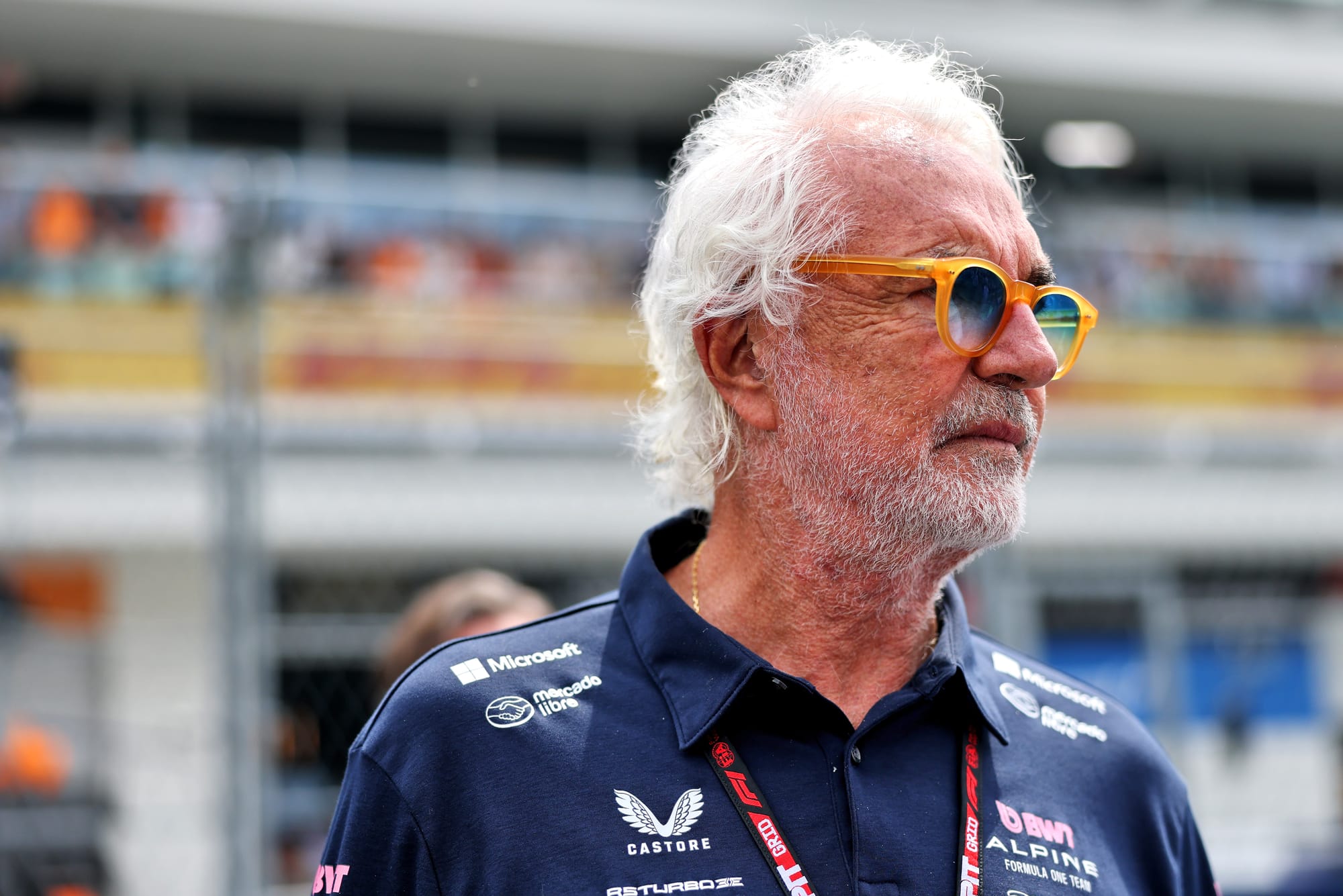
Twelve months ago, Alpine was going nowhere. Since then, it's removed an underperforming technical head, its own underperforming engine and now an underperforming second driver.
David Sanchez and customer Mercedes engines will be upgrades on what came before. The jury is still out on Colapinto, but last year with Williams he delivered far more results than Doohan did at Alpine. So I wouldn't be surprised if he produces more than Doohan - who only ever felt like a short-term solution - did.
So it's important to give these seemingly chaotic changes time to unfold before jumping to conclusions that they're a failure.
There's a lot of pragmatism to it, given both the Renault engine and Doohan himself have cost Alpine a lot of points in 2025 so far.
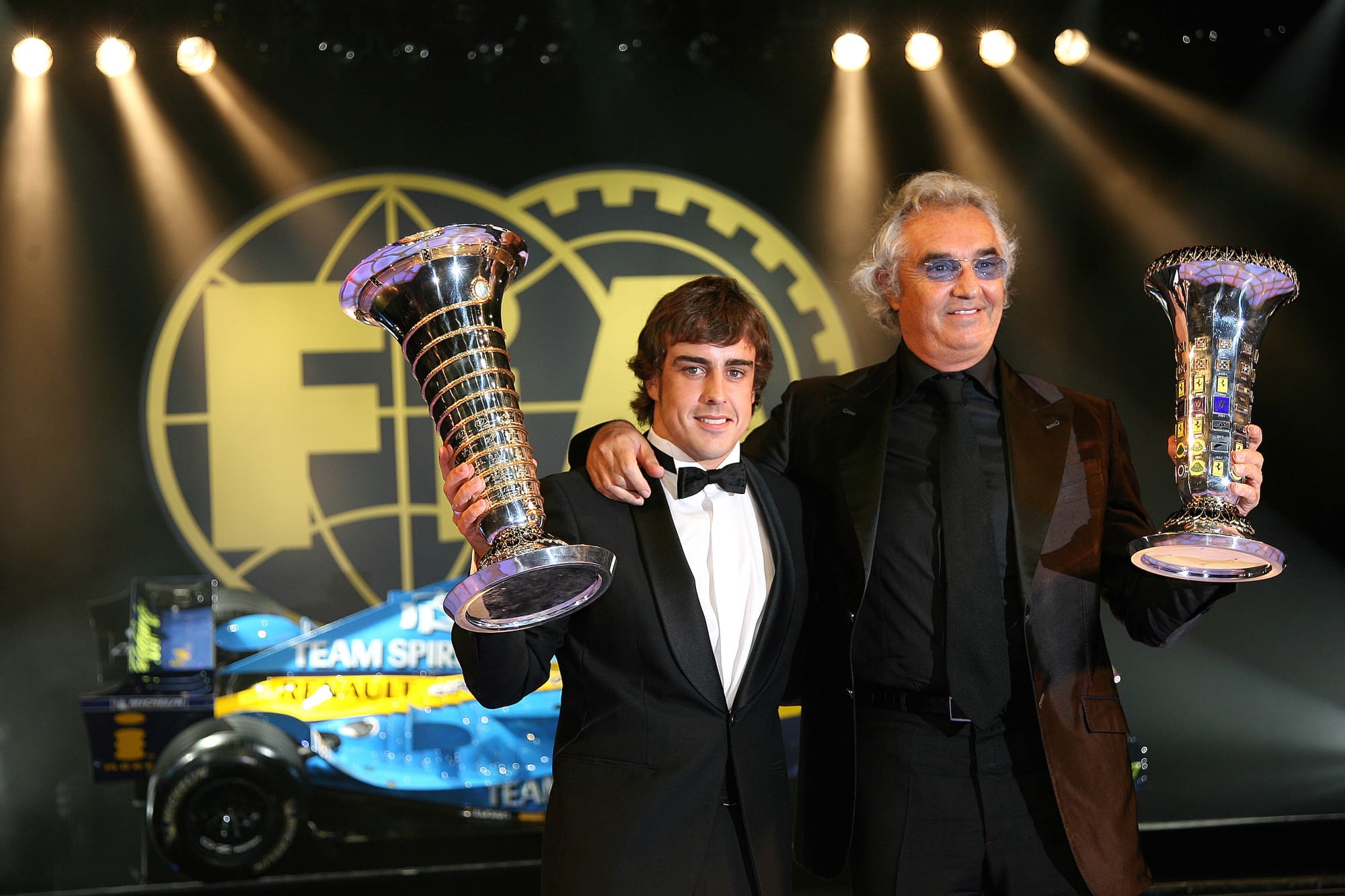
Briatore's style isn't for everyone, but Team Enstone hasn't won a world championship without him.
That's not to say Briatore's approach will work in the 2020s, but you can understand why Renault has seemingly gone all in on backing him - and it feels like he'll either lead it back to success or into F1 oblivion.


